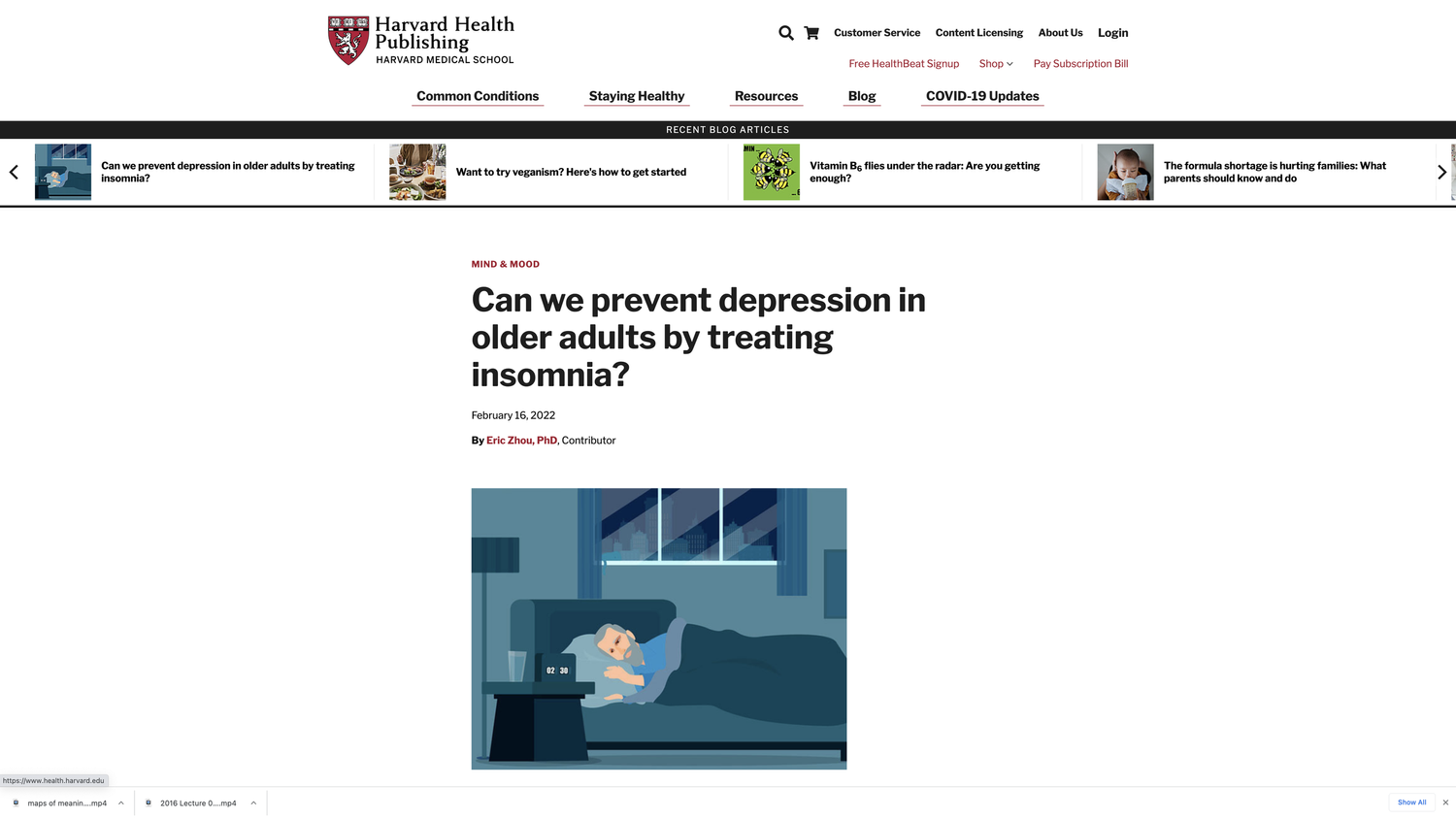Why do we care about causality? The primary reason is that we are looking for interventions that can make things better. Some causal results give only one part of the puzzle of designing an intervention to make things better, while other causal results directly recommend an interview once combined with a reasonable judgment about what constitutes “better.”
The result in “Prevention of Incident and Recurrent Major Depression in Older Adults With Insomnia” by Michael R. Irwin, Carmen Carrillo, Nina Sadeghi, Martin F. Bjurstrom, Elizabeth C. Breen, and Richard Olmstead that “Cognitive Behavioral Therapy for Insomnia” (CBT-I) applied adults 60 years or older who have insomnia, but don’t initially qualify as having major depression both reduces insomnia and reduces the incidence of major depression. This is a very useful thing to know.
It is tempting to interpret this result as strong evidence that insomnia causes an increased incidence of major depression. It is quite plausible that is true, since many experiments show that extreme sleep deprivation (or extreme deprivation of just REM—dreaming—sleep) quickly causes people to go crazy. But underlying subclinical depression could easily disrupt sleep, so there is a real possibility of reverse causality. And as a statistical instrument, CBT-I does not satisfy the exclusion restriction: Cognitive Behavioral Therapy (CBT) in general is known to have a powerful effect in reducing depression even in people who don’t have insomnia. So the CBT elements in CBT-I are likely to have a direct effect in reducing depression that doesn’t all work through reducing insomnia.
What about fact that those whose insomnia lessened were especially likely to have a reduction in incidence of major depression? I am thinking of this result:
Those in the CBT-I group with sustained remission of insomnia disorder had an 82.6% decreased likelihood of depression (hazard ratio, 0.17; 95%, CI 0.04-0.73; P = .02) compared with those in the SET group without sustained remission of insomnia disorder.
That can be explained simply by lessened insomnia being a sign that the CBT principles “took” for that individual. That is, CBT is going to work better for some people than others, if only because after being taught CBT principles, some people will really use those principles in their lives and others won’t. If CBT “takes” for an individual, it can have benefits in multiple areas.
Should we care whether reduction in insomnia is the pathway by which CBT-I reduces the incidence of depression? Not if CBT-I is, and would stay, the only effective treatment for insomnia. But when there is another effective treatment for insomnia, it matters. Whether that other treatment for insomnia will reduce the incidence of depression depends on the extent to which the pathway by which CBT-I reduce depression is through lessening insomnia. The best way to find that out is to do a similar study with other effective treatments for insomnia. If enough different effective treatments for insomnia also reduce the incidence of depression, that raises confidence that the next effective treatment for insomnia will also reduce the incidence of depression, which is the most important practical thing we would mean by claiming that insomnia causes a higher incidence of depression.
Statistically, many different effective treatments for insomnia reducing the incidence of depression would make it more likely that at least one of those treatments approximately satisfied the exclusion restriction by not having a big direct effect on incidence of depression. Note how that would depend on how different the “different effective treatments for insomnia” are. For example, in the extreme, if they were all minor variations on CBT-I, then they don’t lend much additional evidentiary weight to the claim that insomnia causes a higher incidence of depression.


